Stray Dogs
It was around two in the night. In the park across from the government colony, a meeting of dogs was underway. Nearly thirty of them sat in a circle, their eyes brimming with fear, anger, and helplessness. Outside, an eerie silence prevailed, while inside each of them, a storm raged.
This pack ruled the territory around the colony, which had about fifty houses. In front of it was the park, beyond that the road, and on the other side of the road stood a high-rise apartment complex. The dogs across that road belonged to another gang. Both packs stayed in their own areas; crossing over meant risking their lives.
Mangal’s pack managed to get by mostly through the scraps offered by a few sympathetic colony residents. There was also a tea-and-snacks stall by the park wall; people sometimes tossed biscuits or bread their way. The rest of the time, they roamed for food. At night, they returned to the park, each curling up in their corner to sleep. Life, though not easy, was manageable.
As in every society, they too encountered both kindness and cruelty. Some people fed them, some shooed them away, some recoiled in fear, while others patted their heads with affection. But over the past few years, a sharp change had come in the relationship between dogs and humans.
On one hand, compassion and love for dogs had grown among certain people. On the other hand, hatred and insensitivity towards them had also intensified. As a result, a new battlefront had been added to the list of disputes in every street and neighborhood: dog-lovers vs. not-dog-lovers.
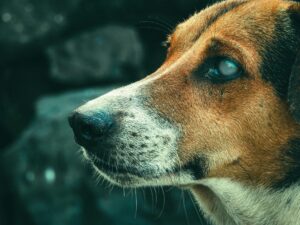
Mangal, who seemed to be the leader, broke the silence:
“This… what’s happening, it’s not right. Not for us, not for humans either.”
Bhura, his voice choked with rage, blurted out:
“Yesterday they took away Moti, right in front of me! The municipality men brought an iron clamp to shut his mouth; it cut his snout, he was bleeding. I tried—I tried hard—but I couldn’t save him. I searched every shelter home in the city all day, but he was nowhere. God knows where they’ve taken him!”
His breath quickened. His voice cracked. Then, as if words had abandoned him, he howled in grief.
Mangal had expected Bhura’s anger to erupt tonight, but not this collapse. After all, it was Mangal who had brought both Bhura and Moti into his pack. Their mother had been crushed under a car when they were just three months old. Ever since, they barked madly at every passing white car.
Mangal went over, consoled Bhura, then addressed the circle:
“We must find a solution—something that works for us and for humans as well.”
Bhura snapped:
“Solution? This is about life and death, and you’re preaching wisdom! Tell me, when was the last time any one of us went a day without being kicked, beaten, or stoned? Humans treat us as enemies. They want us street dogs erased from their sight.”
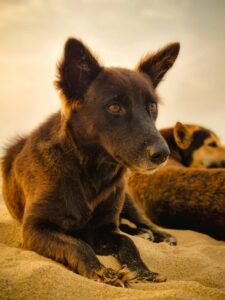
Kalu growled in agreement:
“Exactly! They call us ‘man’s best friend.’ Is this how you treat a best friend? Selfish humans—they tamed us for their needs, and now they say, ‘We’re a menace to society.’ A menace to society?”
Mangal’s eyes fell on Kalu’s broken leg. His anger, too, was justified. Once, a man had driven his bike over Kalu’s sleeping body just for fun. For two days, Kalu had writhed in pain.
Minnie spoke in a calm, steady voice:
“It isn’t that simple, Kalu. Like us, humans are of all kinds. And yes, many dogs have attacked people, even children and the elderly, some fatally.”
Bhura flared up again:
“So the answer is to round up every dog and dump us in shelters? Have you seen those shelters? Better to live—and die—on the streets than rot in those hellholes.”
“You’re right about that, Bhura,” Minnie said softly. “All I meant was that people are not all the same. Some are fighting for us. Every day, they search for injured or sick dogs and help them. Kalu, wasn’t it Rekha didi and Suyash bhaiya who rushed you to the hospital? Even though you bit bhaiya in fear?”
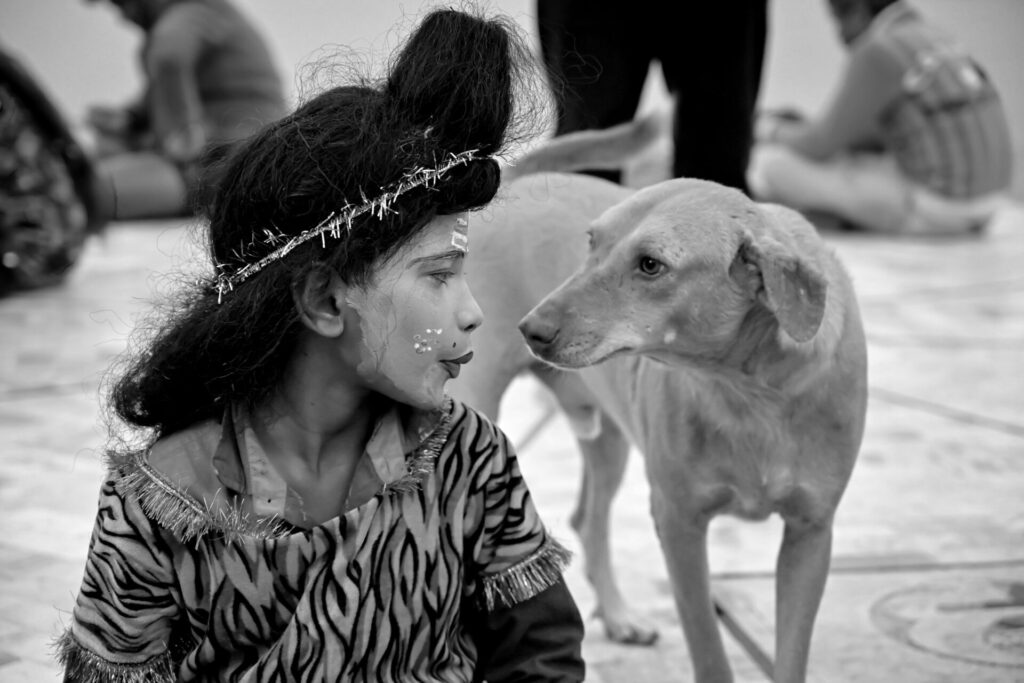
Bhura sneered:
“Lovely, Minnie. This from the one whose own family dumped her on the street one night and never came back.”
The words cut deep. Mangal signaled Bhura to stop. He glanced at Minnie; her eyes were clouded with sadness. The memory rose before him of the day he found her.
During Covid, a family had adopted Minnie. But last year, they abandoned her on a roadside one night. For two whole days, she waited at that very spot, hungry, trembling, and confused, expecting her world, her family, to return. But they never did. She had never known how to survive on the streets, never learned where food came from. At home, her plate had always been full. When hunger gnawed, it wasn’t food she missed—it was the love of her humans.
Mangal had seen her then—frail, terrified. He’d understood immediately: she’d been left behind. He had asked her gently, “How long since you ate?” She had said nothing. He asked again, “Hungry? Come with me.” Since then, she had belonged to the pack.
Now Minnie’s voice trembled:
“What happened to me was cruel, Bhura. But not all humans are cruel. I don’t even blame my family; maybe they had their reasons. But while I was with them, they gave me love. Right now, the real question is—what happens tomorrow? When the municipality truck comes again, what do we do?”
Bhura snarled:
“What do we do? We fight! If I see the man who took Moti, I won’t spare him, come what may!”
Mangal shook his head:
“No, Bhura. We can’t fight them. You know that. Violence will only turn more people against us. Don’t you see we already have enough enemies?”
But Bhura burst out:
“They dragged my brother away before my eyes! I tried—I tried with all my strength. But there were seven of them, with sticks and iron rods. They beat dogs, shoved them into the truck, and snared those who resisted with ropes. Some choked, some dangled upside down as they were hauled away.
And one stick landed right here, ”he pointed to his swollen hind leg, “and I can barely walk now.”
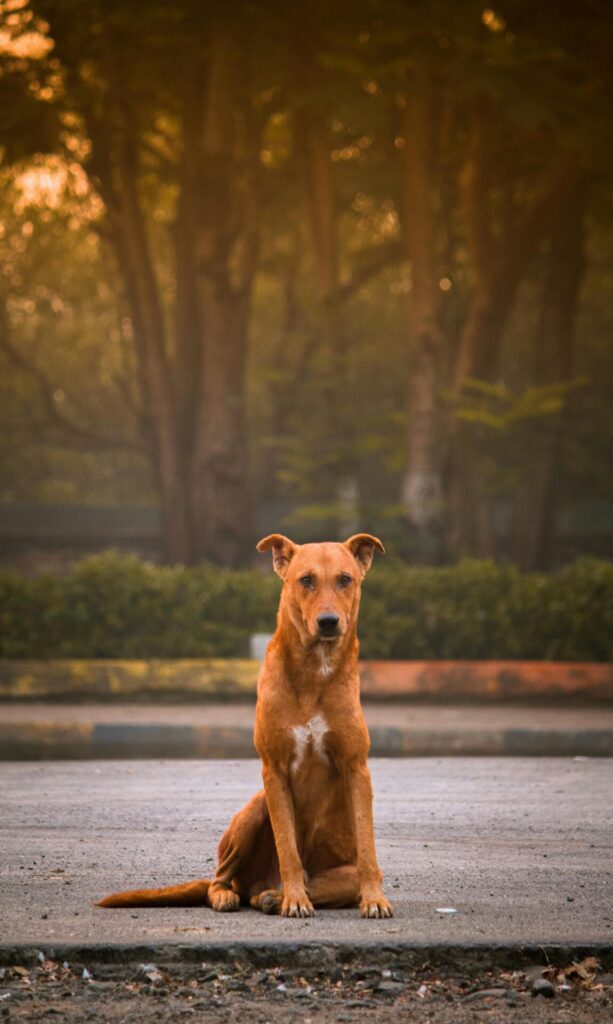
Bhura and Moti had been born on the streets. After their mother’s death, they had been each other’s only family. Together they had fought anyone, anything. Other dogs feared them, and because of them, no rival pack dared cross Mangal’s gang.
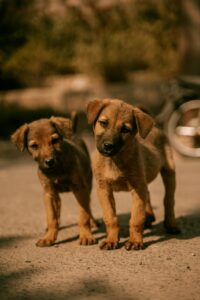
As they spoke, dawn crept in. It was four a.m. Already, elderly residents from the high-rise were emerging for their morning walks. For them, a new day was beginning. For the dogs, the night had been sleepless—haunted by the same question: what will tomorrow bring?
Mangal rose, stepped out of the circle, and stood on the low platform around a tree.
“Perhaps Rekha didi and Suyash bhaiya will come looking for us. Let’s see what they say. The situation is grim. Yesterday at the tea stall, I saw on TV that even the humans protesting in our support were arrested. Who knows what happened to them?”
He paused, gazed at the sky, then spoke again:
“Morning is near. Soon the trucks will come. We must protect ourselves. But we must not let anger push us into fighting. Remember this, Bhura.”
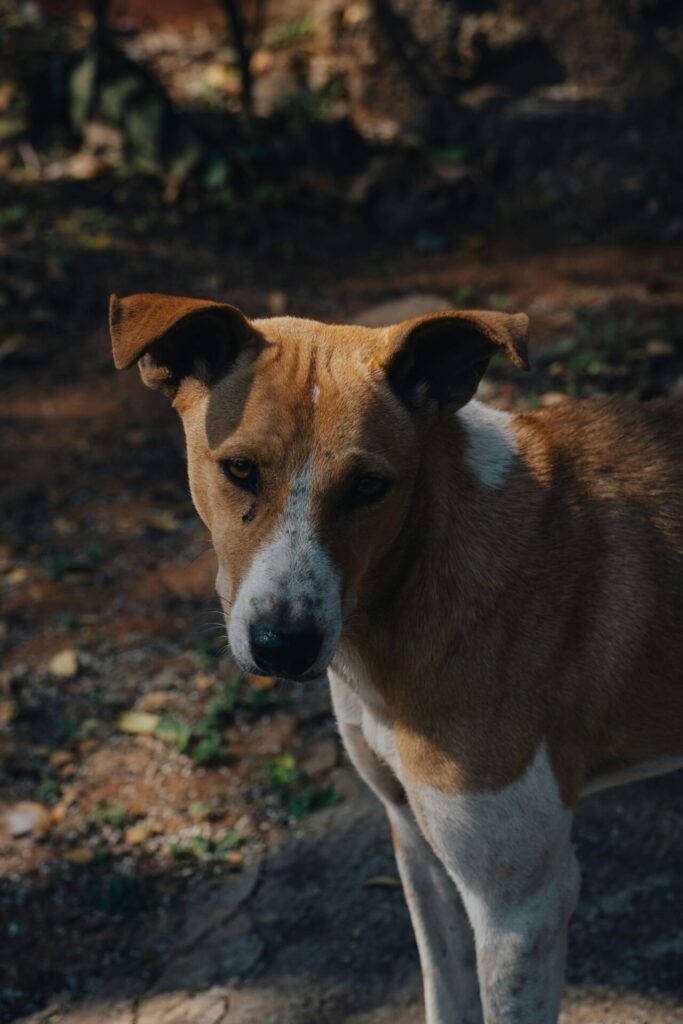
Bhola, who was about Mangal’s age and usually silent, finally spoke:
“Yes. First, we protect ourselves. Beyond that… what can we do? We cannot fight a court’s order. Only humans can fight for us.”
He stood, walked beside Mangal, and said,
“I have written a letter—from all of us ‘stray dogs’—to the court, to the judges who passed this order. We’ll give it to Rekha didi and Suyash bhaiya. Let them read it aloud in court, as our voice.”
Respected Judge,
We humbly request that you reconsider your decision. While giving your verdict, think of us too. We are part of this city. We were born here, and our parents were born here. And now you want us removed—either outside the city or into shelters. Isn’t that unfair, sir?
Yes, some dogs have gone astray, scaring, chasing, and even biting people. For that, lives have been lost. Those guilty ones, by all means, take them away. But is it justice to punish all for the fault of a few?
Every day for us is already a struggle. We wake, wondering if we’ll eat. In the rain, we wonder where to stay dry. In the winter, we shiver seeking warmth; in the summer, we burn seeking shade. Each day, we live in fear of being run over, stoned, or kicked.
Our fellow dogs are our only family. We are each other’s strength. If your order separates us, we will lose even that. Imagine, if a human were torn from his family, could he ever be happy?
This government colony, you see, was built just ten years ago. Many of us lived here long before the flats. We were driven away then. And now, once more, you wish to drive us out. Isn’t that too much, sir?
And perhaps you, too, have been told only what television shows—headlines screaming: “Dogs on Rampage,” “Killer Dogs,” “City in Fear.” The media thrives on hatred. They have turned even dogs into their villains.
The truth is different. If a human feeds us, if he strokes us with affection, we give him loyalty for life. More than food, it is love we crave. One who lacks something knows its value, sir.
So we beg of you, please do not drive us away. We will harm no one. Do not take from us the little patch of earth and slice of sky that is ours.
Yours faithfully,
Residents of the Park opposite the Government Colony
The pack listened intently.
Mangal said, “Well, Bhola, I never knew you could write this well. It’s beautifully written. We’ll hand it to Rekha ji tomorrow.”
Bhura muttered, “And will that change anything? Will everything be fine again?”
Minnie replied gently: “Who knows if things will be fine. But at least there will be hope—that our voice is heard. Maybe humans, too, will realize this order is not just wrong but impossible to enforce.”
Silence fell. Fear of tomorrow lingered, but along with it, a flicker of hope that people like Rekha didi and Suyash bhaiya were with them, would fight for them.
In that gathering of dogs, despair and anxiety loomed heavy. And yet, deep within, there was faith too—that the true picture of the city could only exist if both humans and animals lived together. If one side were erased, the picture would forever remain incomplete.
Picture Credits- pexels.com